Top 10 Things to Know About Levothyroxine
Levothyroxine is a synthetic form of the thyroid hormone, thyroxine, and is commonly prescribed to individuals with an underactive thyroid gland. While it is a ... read more...highly effective medication, it is important to understand certain aspects of its use to ensure its proper administration and management of its potential side effects. Here are some key things to know about levothyroxine.
-
Levothyroxine is a medication used to treat a thyroid gland (hypothyroidism) that is underactive. Eltroxin is the brand name for this medication.
Thyroid hormones are produced by the thyroid gland and aid in the regulation of energy levels and growth. Levothyroxine is used to replace the thyroid hormone thyroxine, which is deficient.
Levothyroxine is only available with a doctor's prescription. It is available as tablets or as a liquid to be swallowed.
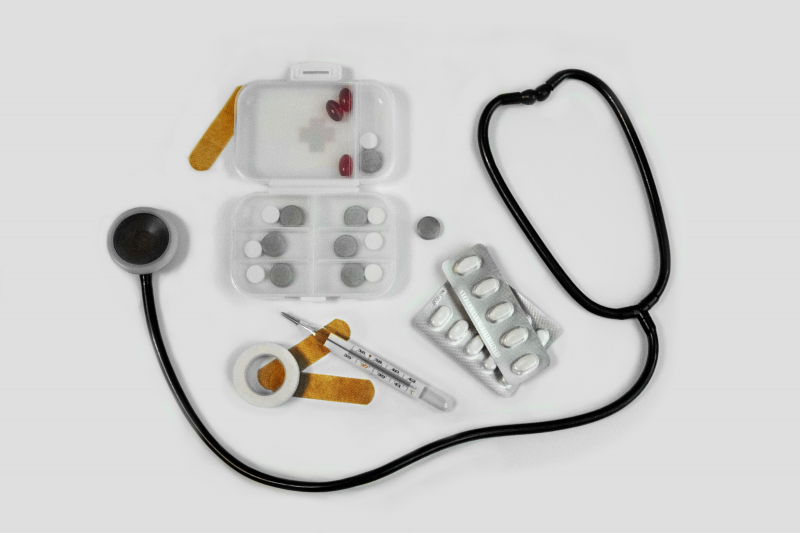
LloydsDirect (formerly Echo) LloydsDirect (formerly Echo) -
A hormone called thyroxine has a synthetic equivalent called levothyroxine. It prevents the signs of hypothyroidism and replaces thyroxine if your thyroid gland is unable to produce it.
Although levothyroxine begins to work right away, it might take a few weeks before your symptoms start to get better.
Levothyroxine side effects are most frequently brought on by taking more of the medication than is necessary. To help lessen any side effects, your doctor may reduce your dose.
Your doctor will perform a blood test prior to you beginning to take levothyroxine. As soon as you begin taking the medication, you will undergo routine blood tests to determine how well it is working.
During pregnancy, levothyroxine doses must be carefully monitored. If you intend to become pregnant or suspect you may be pregnant, you should consult with your doctor to ensure that you and your baby receive the best possible care.

Photo by Roberto Sorin on Unsplash 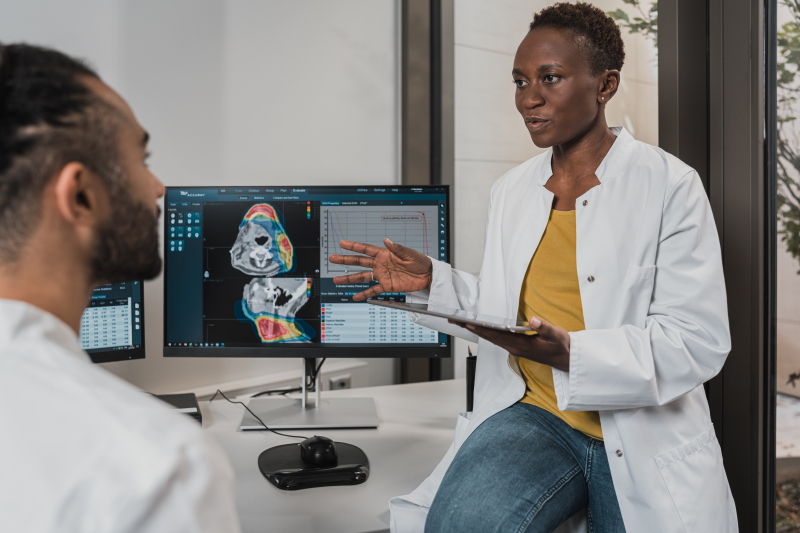
Photo by Accuray on Unsplash -
Most adults and children can take levothyroxine. However, it is not suitable for everyone.
Before taking levothyroxine, consult your doctor if you:
- have a hyperactive thyroid that produces too much thyroid hormone, have ever experienced an allergic reaction to levothyroxine or any other medication (thyrotoxicosis)
- a health issue affecting your adrenal glands (your doctor can tell you if you're unsure)
- possess a cardiac condition, such as angina, heart disease, or heart failure
- have elevated blood pressure
- ever suffered a heart attack
- have diabetes, you may need to adjust the dosage of your diabetes medication because levothyroxine raises blood sugar levels.

Photo by National Cancer Institute on Unsplash 
Photo by Christine Sandu on Unsplash -
Take levothyroxine once a day in the morning, preferably at least 30 minutes before breakfast or a caffeine-containing beverage, such as tea or coffee. Food and caffeinated beverages can both prevent your body from properly absorbing levothyroxine, causing it to work less effectively. If you stop taking levothyroxine, your symptoms will most likely return.
Dosage and strength
Levothyroxine dosage varies from patient to patient. To complete your dose, you might need to take several different tablets. How many tablets you should take daily will be determined by your doctor.
Levothyroxine tablets are available in dosages of 12.5, 25, 50, 75, and 100 micrograms.
Levothyroxine comes in liquid form, and 5ml can contain 25 micrograms, 50 micrograms, 100 micrograms, or 125 micrograms of the medication.
The amount of levothyroxine you end up taking or how quickly the dose is increased depends on your symptoms, hormone levels, age, and whether you have any other health issues, even though starting doses are typically the same.Adults typically begin with a dose of 50 to 100 micrograms taken once daily. This can be gradually increased over a few weeks to between 100 and 200 micrograms taken once a day.
Some people, such as those over the age of 50 or those with heart disease, may begin on a lower dose.How to take levothyroxine
With a drink of water, swallow the tablets whole. For children and those who find it difficult to swallow tablets, levothyroxine is available as a liquid. It comes in a variety of strengths. If you or your child is taking levothyroxine as a liquid, it will typically come with a plastic syringe or spoon to help you measure the correct dose. Ask your pharmacist for a syringe or measuring spoon if you don't have one. A kitchen teaspoon will not provide the correct amount.
If you forget to take it
If you miss a dose, take it as soon as you remember, unless your next dose is almost due. Simply skip the missed dose in this situation and take the subsequent dose at the scheduled time. To make up for a missed dose, do not take 2 doses at once. Set an alarm to remind you if you frequently forget to take your medication. Asking your pharmacist for suggestions on other strategies to help you remember to take your medication is another option.
If you take too much
If you take more levothyroxine than is recommended, you may experience symptoms like a pounding heartbeat (palpitations).
Having regular blood tests
Regular blood tests will be performed by your doctor to determine the levels of thyroid hormones in your body before and after you begin taking levothyroxine. These will allow your doctor to tailor the dose to your specific needs. You can expect blood tests quite frequently at the start of treatment, but once your hormone levels are stable and your symptoms are under control, your levels will usually be checked once a year. You may require more frequent blood tests if you:
- are pregnant
- start or stop a medicine that can affect the way levothyroxine works
- have any symptoms that could mean your dose is not quite right
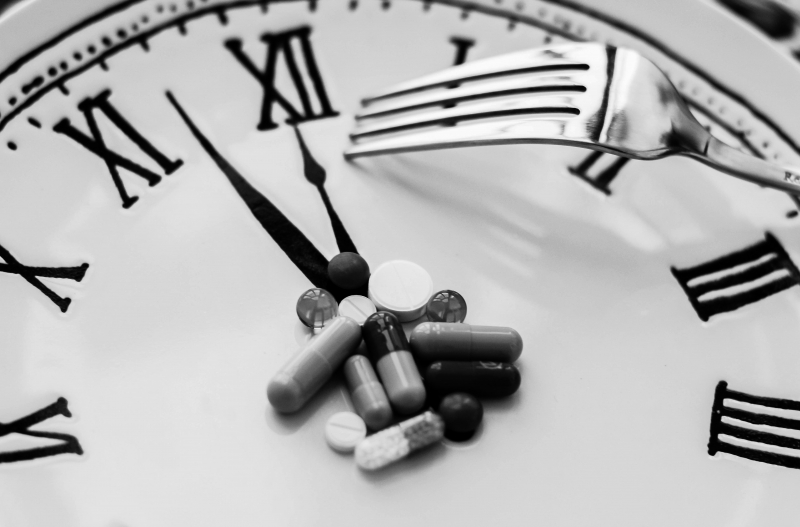
Photo by Ksenia Yakovleva on Unsplash AbrahamThePharmacist -
Levothyroxine can have side effects, but not everyone experiences them. This is true of all medications. The side effects of levothyroxine should disappear once you are taking the recommended dosage.
If you have changed to a different brand of levothyroxine and begin to experience any of the following symptoms:
- symptoms of an underactive thyroid including feeling tired, weight gain, or feeling depressed
- symptoms of an overactive thyroid
You might need to stick with the brand of levothyroxine you were previously taking if you are sensitive to the new one your doctor has prescribed.
Common side effects
The most common side effects of levothyroxine occur when the dose is higher than necessary. These side effects usually go away after you reduce your levothyroxine dose or discontinue treatment.
The most common side effects are similar to the symptoms of an overactive thyroid. There are things you can do to help yourself cope.- Feeling sick (nausea)
- Being sick (vomiting)
- Diarrhoea
- Headaches
- Feeling restless or excitable, or problems sleeping
- Flushing or sweating
- Muscle cramps
- Shaking, usually of the hands
If these side effects bother you or do not go away, consult your doctor or pharmacist.
Serious allergic reaction
Rarely, but still possible, some people who take levothyroxine may experience severe side effects. If you experience rapid or irregular heartbeats (palpitations), call 111 or your doctor right away. 111.nhs.uk or 111 can be contacted Levothyroxine can, on occasion, cause a severe allergic reaction (anaphylaxis). Levothyroxine has additional side effects in addition to these. See the leaflet inside your medicine packet for a complete list.

Photo by Anshu A on Unsplash Pharmacist Tips -
You've probably heard that taking levothyroxine 30 to 60 minutes before breakfast is a good idea. This is because it is more easily absorbed into the body on an empty stomach.
However, this can be difficult if your morning schedule is unpredictable. Instead, you can take levothyroxine every night before bed. It should be taken at least 4 hours after your last meal or before taking any other medications or supplements. Levothyroxine taken at bedtime is as effective as taking it one hour before breakfast. So it makes no difference whether you take it in the morning or at night. Just make sure to take it at the same time every day, away from food.
Levothyroxine has been shown to be equally effective when taken at bedtime and one hour prior to breakfast. Therefore, it makes no difference whether you take it in the morning or at night. Just be sure to take it at a different time each day than you would with food and other medications.
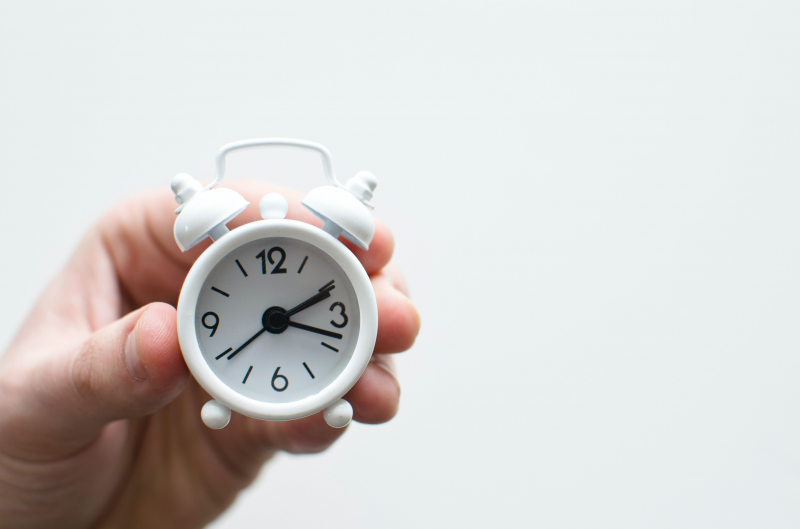
Photo by Lukas Blazek on Unsplash 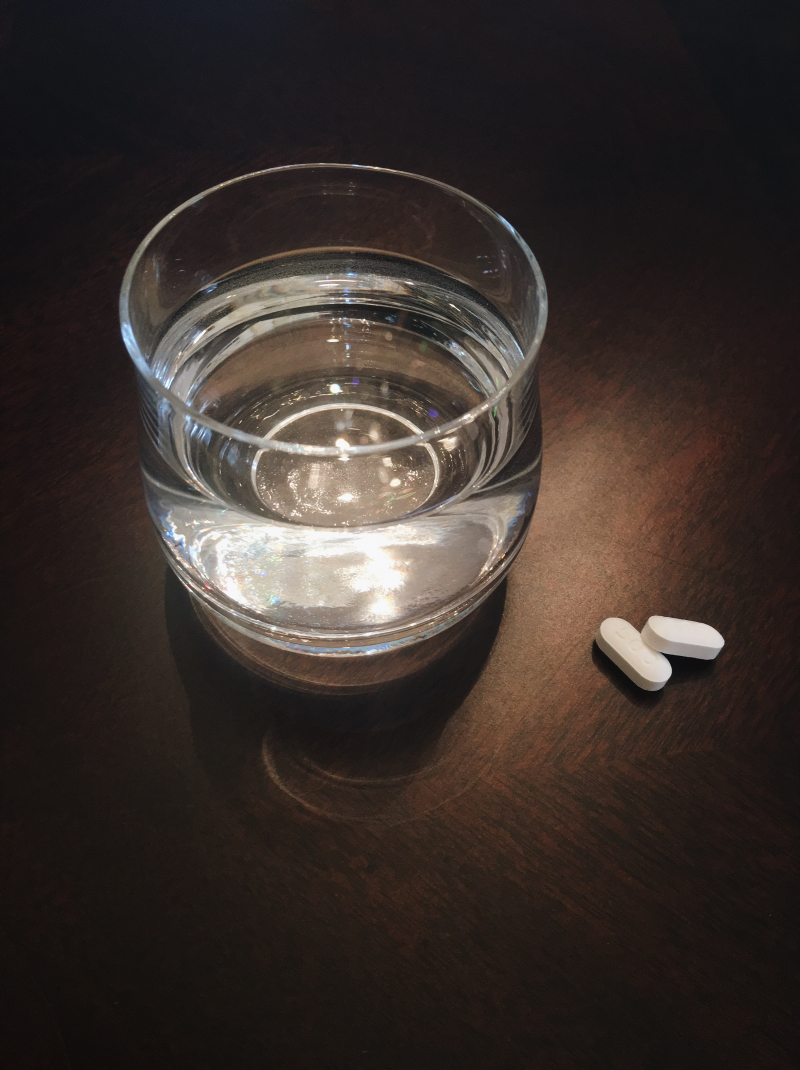
Photo by pina messina on Unsplash -
Levothyroxine tablets are a synthetic (lab-made) version of the T4 hormone. They have the same effect as T4 hormone, which is produced by your thyroid gland. That is why they work so well when your thyroid hormone levels are low.
When you take a levothyroxine tablet, it is converted into T3, the active hormone that affects the rest of your body. T3 can also be obtained through medications such as liothyronine (Cytomel).
Some people have questioned whether replacing both T3 and T4 in hypothyroidism is beneficial, but studies show no benefit. When possible, the current recommendation is to take levothyroxine alone for hypothyroidism.
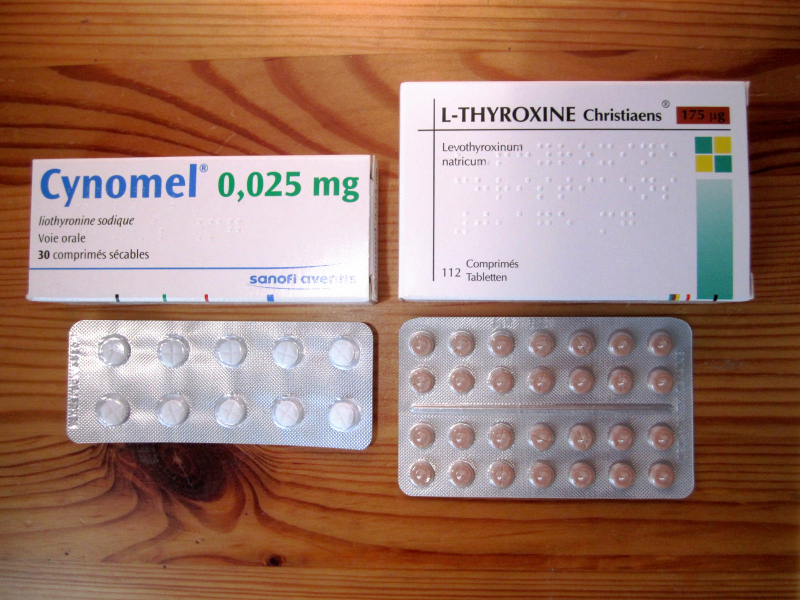
Photo on Wikimedia Commons (https://upload.wikimedia.org/wikipedia/commons/e/e1/Thyroid_hormone_pills_-_left_T3_-_right_T4.jpg) 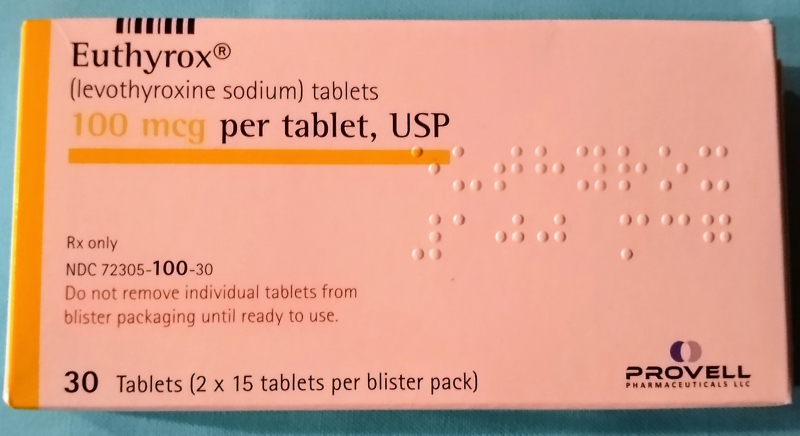
Photo on Wikimedia Commons (https://upload.wikimedia.org/wikipedia/commons/e/ef/Generic_Euthyrox.jpg) -
Levothyroxine may interact with a variety of drugs. Levothyroxine's effectiveness may be decreased by some drugs, including phenobarbital, omeprazole (Prilosec), and antacids. And this may indicate that your thyroid hormone intake needs to be increased. Beta-blockers and amiodarone (Pacerone), however, may increase the potency of its effects. Levothyroxine dosage reduction might be necessary as a result.
Levothyroxine can also interact with specific foods (such as coffee, grapefruit juice, and alcohol) and dietary supplements (like iron, calcium, and vitamin C). They obstruct the body's ability to absorb levothyroxine effectively. It is advised to take it empty-handed, preferably in the morning 30 to 60 minutes before breakfast or at bedtime at least 4 hours after eating or taking supplements.
The benefit of levothyroxine is that your healthcare provider can monitor your thyroid lab results and adjust the dose as needed. However, it is critical to maintain as much consistency as possible with your diet, other medications, and the timing of your levothyroxine.

Photo by Rinck Content Studio on Unsplash 
Photo by Adam Wilson on Unsplash -
Levothyroxine can be continued during pregnancy without any risks. But during this time, additional monitoring might be conducted. As soon as you become pregnant, your healthcare provider will check your thyroid hormone levels and may adjust your dose during and after your pregnancy. Repeat lab tests should be done after delivery and during each trimester of pregnancy.
Additionally, some people may experience newly discovered hypothyroidism following pregnancy. Starting to take levothyroxine during pregnancy is also safe.

Photo by Volodymyr Hryshchenko on Unsplash 
Photo by Anastasiia Chepinska on Unsplash -
Will it make me lose weight?
Weight gain is one of the symptoms of an underactive thyroid gland. As a result, once you begin taking levothyroxine, you may lose weight as your hormones rebalance. Loss of weight can also indicate that your levothyroxine dose is too high. Once your thyroid hormone levels have returned to normal, you will have the same tendency to gain or lose weight as people who do not have thyroid problems.
Will I lose my hair?
Levothyroxine therapy does not cause hair loss; rather, an underactive thyroid does.Due to the lengthy natural growth cycle of hair, thyroid disease-related hair loss may not become apparent for several months after the onset of the condition. If levothyroxine therapy has already begun, hair loss may appear to be brought on by the medication rather than the underlying condition.
Levothyroxine therapy usually results in hair growth, though it may take several months.

Image by Louis from Pixabay 
Image by Elisa from Pixabay












